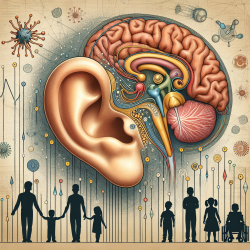Understanding the Impact of Double-Duty Carers on Child Outcomes
In the realm of speech-language pathology, we strive for optimal outcomes for children. Yet, an often-overlooked factor in this equation is the role of Double-Duty Carers (DDCs). These are individuals who juggle professional healthcare roles while providing unpaid care to dependents. A recent study, "Double-Duty Carers’ Health and Wellbeing during COVID-19: Exploring the Role of Mobility of the Care Economy in Southern Ontario, Canada," sheds light on the challenges faced by DDCs, particularly during the COVID-19 pandemic.
The Research Findings
The study conducted a thematic analysis of 16 semi-structured interviews with female DDCs in Southern Ontario. It identified three mobility pathways during the pandemic that negatively affected DDCs' wellbeing:
- Increased Mobility Demands: COVID-19 policies, such as testing requirements, resulted in increased mobility demands and spatiotemporal constraints.
- Forced Decreased Mobility: The closure of institutions like schools and daycares forced reduced mobility, increasing financial stress.
- Indirect Mobility Effects: Reduced mobility of other informal carers increased the workload and emotional strain on DDCs.
Implications for Speech-Language Pathologists
As practitioners, understanding these mobility constraints is crucial. The stress and time constraints experienced by DDCs can directly impact the care and support they provide to children. Recognizing these challenges can help us tailor our interventions and support systems to better accommodate the needs of children and their caregivers.
Strategies for Improvement
Here are some strategies that can be implemented to support DDCs and, by extension, improve child outcomes:
- Flexible Scheduling: Allowing flexible scheduling can help DDCs manage their dual roles more effectively.
- Peer Support Groups: Facilitating peer support groups for DDCs can provide emotional support and practical advice.
- Remote Support Options: Offering remote therapy sessions can reduce mobility demands and provide continuity of care.
Encouraging Further Research
The study highlights the need for further research into the mobility of care and its impact on DDCs and child outcomes. By exploring these dynamics, we can develop more comprehensive support systems that enhance the wellbeing of both carers and children.
To read the original research paper, please follow this link: Double-Duty Carers’ Health and Wellbeing during COVID-19: Exploring the Role of Mobility of the Care Economy in Southern Ontario, Canada.










